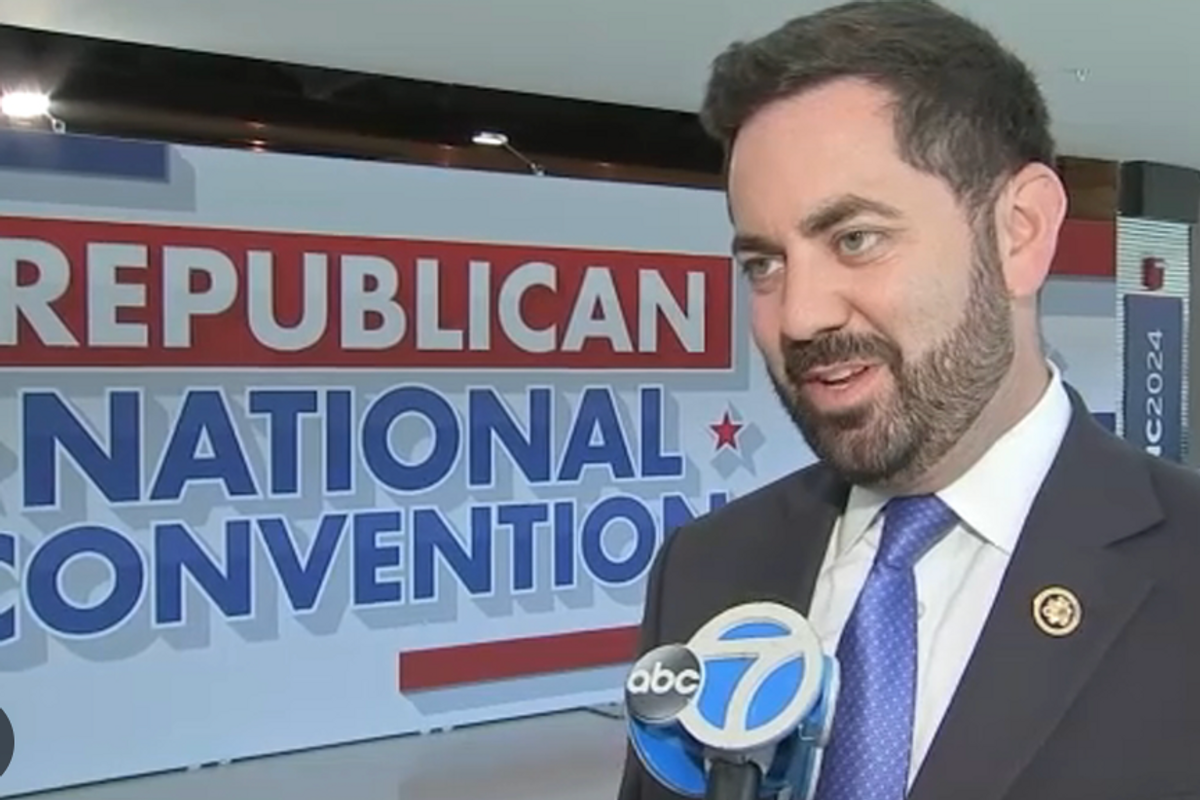
In what is now a familiar scene, yet another GOP lawmaker got mercilessly booed and jeered by their own constituents at a town hall, facing a barrage of questions that all boiled down to one central theme: Why won’t Republicans stand up to President Donald Trump?
The latest victim of town-hall rage was Republican Rep. Mike Lawler of New York, who held an event Sunday night in which he prescreened audience members to ensure they lived in his district, similar to what his Republican colleague Byron Donalds did in Florida last week.
Yet, despite Lawler’s efforts to keep out the supposed outside agitators whom Republicans have baselessly claimed are being paid by Democrats to incite scenes to embarrass GOP lawmakers, the prescreened attendees still took Lawler to task for not standing up to his party’s leader.
“What are you doing to stand in opposition to this administration, and what specifically are you doing that warrants the label ‘moderate’?” one constituent asked Lawler after laying out the ways Trump is hurting Americans, such as putting tariffs on all imports and deporting a two-year-old American citizen with cancer.
“My record speaks for itself,” Lawler replied, eliciting gasps and even laughter from the crowd. “I have been rated the fourth-most bipartisan for a reason, which is the very simple fact that, unlike many of my colleagues, I actually do work across the aisle.”
Lawler also got booed when he was defending Trump’s tariffs, with constituents chanting “blah, blah, blah” and drowning out his answer.
And in perhaps his most absurd answer, Lawler told voters not to believe that he’d vote to cut Medicaid, even though he voted earlier this month for the GOP budget blueprint that would require hundreds of billions in cuts to the lifesaving program that provides insurance to roughly 72 million Americans a year.
“When it comes to Medicaid, I have been very clear: I am not cutting benefits for any eligible recipient,” Lawler said, according to The New York Times, adding of the budget he voted for, “That is as good as the paper it’s written on.”
Lawler, for his part, is one of the most vulnerable Republicans in the House.
He's one of just three House Republicans who represent districts that Democrat Kamala Harris won at the presidential level. Harris received 49.9 percent of the vote in Lawler’s district, while Trump got 49.3 percent, according to data compiled by The Downballot.
Lawler is also mulling a bid for governor of New York, which may be an even tougher climb in a blue state where Trump is deeply unpopular. According to Civiqs’ tracking poll, just 34 percent of voters in New York approve of the job Trump is doing as president, as opposed to 62 percent who disapprove.
Because of his district’s partisanship, it’s not surprising that Lawler would face blowback.
However, GOP lawmakers are being met with enraged voters even in districts and states Trump won by large margins.
It’s a warning sign for Republicans, who will be facing strong headwinds in the 2026 midterm elections if Trump’s approval rating remains as abysmal as it is now. Even more concerning for Republicans is that Trump’s approval is this low before the impact of his tariffs have really hit voters, with experts warning that empty shelves and skyrocketing prices are expected to hit in May and June.
Early polling shows Democrats with an advantage on the generic congressional ballot, which asks voters which party they'd like to see control Congress.
A Fox News poll released Friday found that Democrats hold a lead on the generic congressional ballot by seven percentage points—a large margin that suggests a sizable Democratic victory in the midterms. The poll found that 49 percent of registered voters said they'd vote for a Democrat for Congress, while 42 percent said they'd vote for a Republican.
To put that in perspective, in 2018, when Democrats won control of the House, the final generic-ballot average had Democrats up by 7.3 points, according to RealClearPolitics.
"If the House GOP is under any illusions that Donald Trump's fall in the polls won't bring them down as well—well, they are living on fantasy island,” CNN polling analyst Harry Enten said, adding in a post on X, “Polls look like April ‘05 & '17, prior to big Dem midterm gains.”
Reprinted with permission from Daily Kos.








